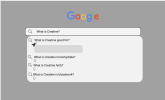When developing an application that interacts with Google or other internet browsers, especially for tasks like automating searches, scraping data, or controlling the browser, several programming languages are commonly used:
1. Python (Selenium, BeautifulSoup, Requests, Scrapy) is highly regarded for its simplicity, vast library support, and active community. It is particularly popular for web automation and scraping due to its rich ecosystem.
2. JavaScript (Node.js - Puppeteer, Playwright, Axios) is native to the web, making it an excellent choice for tasks that require deep interaction with web pages. Node.js, in particular, is efficient for asynchronous tasks.
3. Java (Selenium, Jsoup, Apache HttpClient) is known for its stability and scalability, making it suitable for larger applications.
4. C# (Selenium, HttpClient) is well-integrated with Windows and works seamlessly with Selenium for browser automation.
5. Go (Chromedp, Colly, Goutte) is known for its concurrency capabilities, making it efficient for tasks requiring parallel execution.
If you're looking for the best balance between ease of use, community support, and capability, Python is often the preferred choice. It has extensive libraries for web automation (like Selenium) and web scraping (like BeautifulSoup and Scrapy), making it a versatile option.
However, if your application is web-focused and you need deep browser integration, JavaScript (Node.js) with Puppeteer or Playwright might be more suitable.

